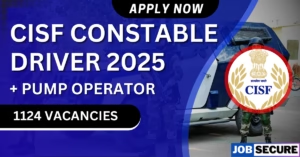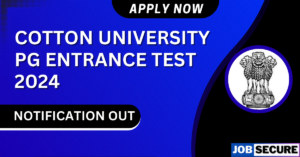important Vocabs
1.Squaring Off (P.V) = to prepare to compete or argue with someone
Synonyms: Confronting, facing off
Antonyms: Avoiding, retreating
2.Rebuke (verb) = to criticize sharply; reprimand
Synonyms: Reproach, admonish
Antonyms: Praise, commend
3.Galling (adjective) = causing extreme irritation or annoyance
Synonyms: Irritating, vexing
Antonyms: Pleasing, soothing
4.Brinkmanship (noun) = the art or practice of
pursuing a dangerous policy to the limits of safety before stopping, typically in politics
Synonyms: Edge play, high-stakes strategy
Antonyms: Caution, risk-aversion
5.Indictment (noun) = a formal charge or accusation of a serious crime
Synonyms: Accusation, charge
Antonyms: Acquittal, exoneration
6.Assassination (noun) = the act of assassinating someone, especially a prominent figure
Synonyms: Murder, killing
Antonyms: Protection, safeguarding
7.Kerfuffle (noun) = a fuss or commotion, especially one caused by conflicting views
Synonyms: Commotion, fuss
Antonyms: Harmony, peace
8.Pugilistic (adjective) = relating to or involved in the sport of boxing
Synonyms: Boxing-related, combative
Antonyms: Peaceful, non-combative
Read The Passage Carefully And Answer The Questions Given Below
New Delhi and Washington appear to be squaring off for a fight over the U.S. expressing its concerns about the Modi government’s actions ahead of the general election. After the U.S. State Department spokesperson first made a comment on the arrest of Delhi Chief Minister Arvind Kejriwal, the Ministry of External Affairs (MEA) summoned the acting Deputy Chief of the U.S. mission in Delhi and sternly called on the U.S. to desist from interfering in India’s internal affairs. A dressing down was also handed to a German diplomat for a similar statement by Germany. However, while the German government appeared to tone down its remarks subsequently, the U.S. administration seems to have doubled down — repeating statements on the need for “fair, transparent, timely legal processes” , and adding the freezing of the Congress Party’s accounts during the election campaign amongst its concerns, prompting yet another rebuke. The U.S. ’s statements, galling for the government, are not new, and its concerns over the Citizenship (Amendment) Act, farmers’ protests, actions against NGOs, and legal action against Opposition politicians have been growing. The Modi government may wish to introspect about whether any of these interventions are valid concerns, and it may be of significance to probe whether this brinkmanship is a symptom of a larger problem in the India-U.S. relationship. Since the U.S. announced an indictment into an alleged assassination plot against a Khalistani separatist and India critic, Gurpatwant Singh Pannun, claiming a link to a top Indian national security official, the quality of public engagement appears to have suffered a setback, even though trade, technology sharing, and military and strategic cooperation remain strong. The decision by U.S. President Joe Biden to decline India’s invitation as Republic Day chief guest and to attend the Quad summit, and the cancellation of U.S. NSA Jake Sullivan’s visit, even as the post of Indian Ambassador to Washington lies vacant, merit close examination.
Given the kerfuffle over Mr. Kejriwal’s arrest, New Delhi has a few choices: it can choose to continue this high-decibel, public and unseemly spat; it can pay the U.S. back in the same coin by commenting on its internal developments; or it can refuse to be provoked. The last option may seem the least attractive to this government, which has made a habit of pugilistic public diplomacy, but in fact would come from a place of strength and security. Global leadership, of the kind that India aspires to, requires broad shoulders, and a thick skin when it comes to criticism, along with a quiet confidence that its democratic record should speak for itself. and a thick skin when it comes to criticism, along with a quiet confidence that its democratic record should speak for itself
summarization
New Delhi and Washington are getting into a heated argument over the U.S. expressing worries about the Modi government’s actions before the upcoming general election. The U.S. commented on the arrest of Delhi’s Chief Minister, and India summoned U.S. officials to stop meddling in its affairs. Germany also got scolded for similar remarks. While Germany toned down, the U.S. reiterated its concerns about fair legal processes and freezing political accounts during elections. These tensions aren’t new, as the U.S. has been worried about India’s Citizenship Act, farmer protests, NGO actions, and legal moves against opposition figures. India might want to think if these worries are valid and if they signal bigger issues in their relationship. Public engagement took a hit when the U.S. accused an Indian official of an assassination plot, even though trade and military cooperation are strong. Biden declining India’s Republic Day invite and canceling visits add to the tension. New Delhi has options: keep arguing, retaliate against the U.S., or stay calm. Choosing calm would show strength and confidence in India’s democratic values, essential for global leadership aspirations.
Questions based on the passage
- What action did the Ministry of External Affairs (MEA) take in response to the U.S. expressing concerns about the Modi government’s actions?
a) Issued a statement of agreement
b) Summoned the acting Deputy Chief of the U.S. mission in Delhi
c) Ignored the concerns
d) Sent a diplomatic envoy to Washington - What was the U.S. State Department spokesperson’s comment about?
a) Arrest of Delhi Chief Minister Arvind Kejriwal
b) Indian general election
c) U.S.-India trade relations
d) German diplomatic relations - Which country’s government appeared to tone down its remarks after a rebuke from India?
a) United States
b) Germany
c) United Kingdom
d) France - What was one of the concerns expressed by the U.S. administration regarding India’s actions?
a) Technological advancement
b) Healthcare policies
c) Fair, transparent, timely legal processes
d) Infrastructure development - What event did U.S. President Joe Biden decline India’s invitation to attend?
a) Quad summit
b) Republic Day as chief guest
c) Indian Independence Day celebrations
d) G20 Summit - What is suggested as a potential response for New Delhi in dealing with the situation?
a) Escalate the conflict further
b) Ignore the U.S. completely
c) Respond in kind by commenting on U.S. internal developments
d) Refuse to be provoked and maintain composure - What is mentioned as a characteristic of global leadership in the paragraph?
a) Aggressiveness in diplomacy
b) Thick skin against criticism
c) Ignoring democratic values
d) Lack of confidence - What aspect of the India-U.S. relationship appears to have suffered a setback?
a) Military cooperation
b) Trade relations
c) Strategic cooperation
d) Public engagement - What was the reason cited for the cancellation of U.S. NSA Jake Sullivan’s visit to India?
a) Diplomatic tensions
b) Health concerns
c) Scheduling conflicts
d) Security threats - What is suggested as a trait necessary for India’s aspirations of global leadership?
a) Public engagement
b) Thin skin against criticism
c) Confidence in its democratic record
d) Avoidance of diplomacy
Answers
| Question | Correct Answer |
|---|---|
| 1 | b) Summoned the acting Deputy Chief of the U.S. mission in Delhi |
| 2 | a) Arrest of Delhi Chief Minister Arvind Kejriwal |
| 3 | b) Germany |
| 4 | c) Fair, transparent, timely legal processes |
| 5 | b) Republic Day as chief guest |
| 6 | d) Refuse to be provoked and maintain composure |
| 7 | b) Thick skin against criticism |
| 8 | d) Public engagement |
| 9 | c) Scheduling conflicts |
| 10 | c) Confidence in its democratic record |





